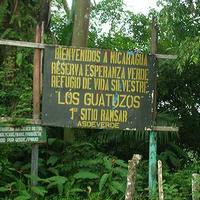What happens when a country without an army discovers that soldiers from a neighboring state have marched into its territory and raised their own flag? That's exactly what the government of Costa Rica, which has no military forces, charges Nicaragua has done, accusing its neighbor of invading its land and destroying its forests. Nicaragua, not surprisingly, sees things differently.
If the events unfolding today in Central America had taken place a quarter of a century ago, there is a good chance that the sound of gunfire would now be ringing out amid the angry charges and countercharges. After all, during the 1980s, Central America became one of the bloodiest battle grounds of the Cold War. Today, however, the great powers have only passing interest in the region. Unlike then, today's conflicts are not driven by the passionate ideology of class warfare. So the repercussions of the dispute between Nicaragua and Costa Rica, while significant, will affect mostly the domestic political realities in those two countries.
In this post-modern conflict, the stand-off, which contains all the ingredients that could lead to open warfare, is instead being fought in the media and in the diplomatic arena. And in a very 21st-century twist, a key player has blamed Google Maps for the crisis.

